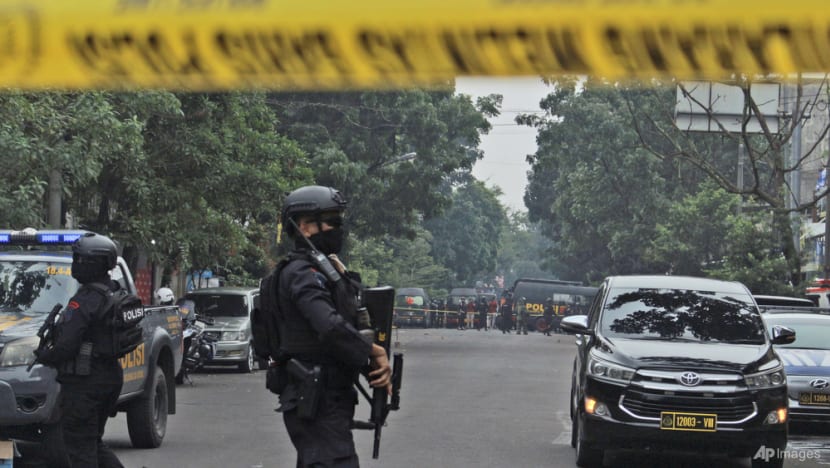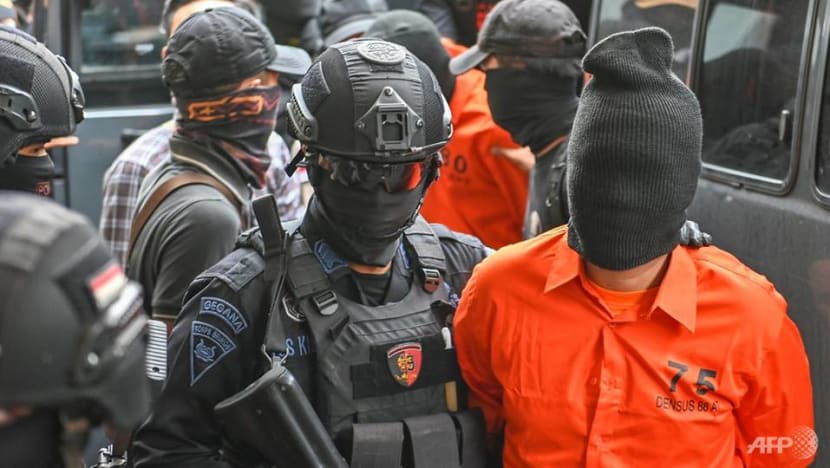Indonesia turning to ‘non-traditional partners’ to help released terrorists avoid relapse: Expert
At least 10 per cent of released terrorists will relapse, says anti-terrorism expert Dr Noor Huda Ismail.

SINGAPORE: Former terrorists released after their jail sentences can be prone to relapsing, and regional governments must be alert and work on reintegrating them into society, said an anti-terrorism expert.
At least 10 per cent of released terrorists will return to extremism, said Dr Noor Huda Ismail, a visiting fellow at the S Rajaratnam School of International Studies.
Authorities should also work with non-traditional partners, such as the former terrorists’ religious leaders and family members, to help them avoid relapsing, he told CNA’s Asia Now on Thursday (Dec 8).
The issue of reintegrating former terrorists has taken centre stage following recent events, such as the release of one of the bombmakers behind the 2002 Bali blasts on parole and a suicide bomb attack that occurred at a police station in Bandung on Wednesday.
RELAPSING TO EXTREMISM
In 2002, Umar Patek was part of an Al Qaeda-affiliated group that detonated devices at a bar and nightclub, killing 202 people, including 88 Australians, in the deadliest terror attack in Indonesian history.
He was released halfway into his 20-year jail sentence, despite repeated pleas from the Australian government to keep him behind bars.
Dr Huda said that the release was “a national decision” by the Indonesian government, which will not listen to foreign governments as a matter of national pride.
“Regional governments must take this issue super seriously,” he urged. “It is a wake-up call for all of us that the issue of terrorism will not go away anytime soon, especially the issue of social integration of released terrorists.”
Noting that Wednesday’s suicide attack in Bandung was also carried out by a released terrorist, Dr Huda said it suggests that the possibility of relapse or recidivism is still high in Indonesia.
The suicide bomber, Agus Sujatno, carried out the attack which killed a police officer and wounded at least 10. He was angered by Indonesia's new criminal code.
He is allegedly affiliated with the Islamic State-inspired group Jamaah Ansharut Daulah and was released in late 2021 after being jailed on terrorism charges.
“Statistically speaking, at least 10 per cent of your released terrorists will relapse,” said Dr Huda, adding that this does not include undetected ones in new roles indirectly involved in the violence, such as giving directions or sharing contacts.
He added that terrorism is a threat not just for the Indonesian government, but for others in the region too. He noted that Jemaah Islamiyah, the group Patek was part of, has attracted people from Singapore, Malaysia and the Philippines.
NON-TRADITIONAL COUNTER-TERRORISM
Dr Huda set up the Institute for International Peace Building, or Yayasan Prasasti Perdamaian, in 2008 to study social approaches to addressing violent extremism.
He said the body has been trying to engage “non-traditional partners” in its efforts, beyond traditional security forces like intelligence agencies and the police, which he said still plays “an important role”.
However, he said extremism is also “a social issue”, with those who succumb to extremist ideology suffering as they cannot relate to other human beings.
“So engaging non-traditional partners, let's say the communities, the clerics, the social ministers ... in this process of social integration will be very critical,” said Dr Huda.

He added that in some cases he has dealt with, released terrorists decided not to continue in their extremist activities as “their priorities have changed”. They do not feel comfortable distressing their mothers, or feel guilty not being good husbands, said Dr Huda.
He said these individuals can hence be used as “credible voices” to convince the former terrorists to renounce the violence, and also challenge the narrative of the whole group.
“We can also use the voice of the family members, who are not directly involved in the violence, but have become the victims of their family’s involvement in violence because they end up in jail, (and) are losing the opportunity to have a good life,” said Dr Huda.














